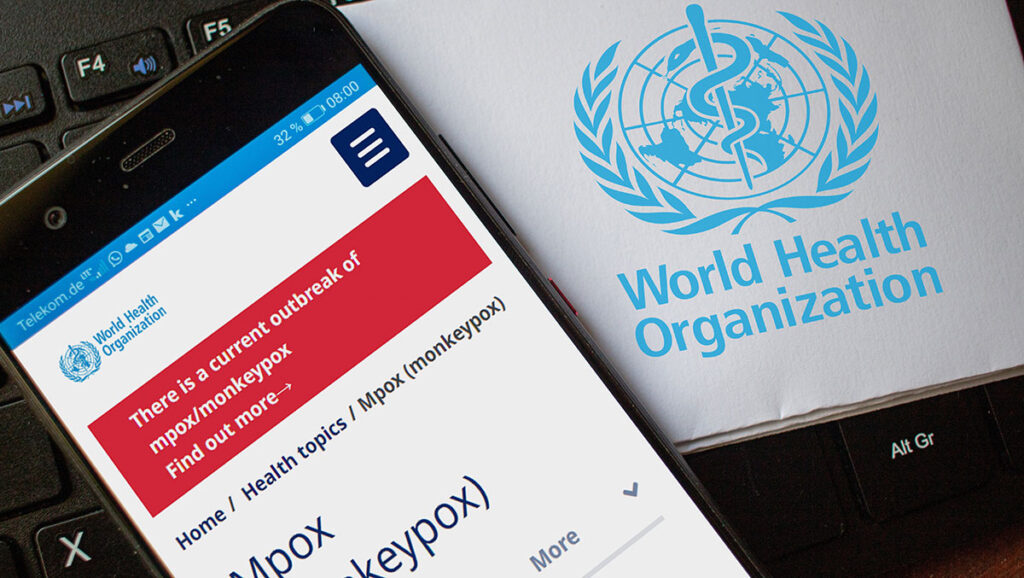In its fourth convening on the ongoing global upsurge of mpox, the International Health Regulations (2005) Emergency Committee met on June 5, 2025, to assess whether the disease’s current trajectory still meets the criteria of a Public Health Emergency of International Concern (PHEIC). The committee unanimously advised the World Health Organization (WHO) Director-General to maintain the PHEIC designation, first declared in August 2024, citing escalating transmission patterns, emerging viral clades, and severe resource shortfalls threatening sustained control.
The WHO Director-General, Dr. Tedros Adhanom Ghebreyesus, accepted the committee’s advice and, on June 9, 2025, reissued temporary recommendations to countries, highlighting mpox as a serious, ongoing global health risk requiring a coordinated international response.
Evolving Epidemiology Across Multiple Regions
The meeting noted that mpox remains highly active across 17 countries in Africa, with notable hotspots in the Democratic Republic of the Congo (DRC), Sierra Leone, Burundi, and Uganda. Each of these countries faces varying degrees of epidemiological complexity, linked to the co-circulation of multiple monkeypox virus (MPXV) clades — including clades Ia, Ib, and IIb.
- In the DRC, over two million vaccine doses have been delivered, yet only 600,000 people have been vaccinated. Co-circulating clades Ia and Ib are driving disproportionate case numbers among young adults and children, particularly in North and South Kivu, where access is complicated by insecurity and weak health infrastructure.
- Sierra Leone is experiencing an aggressive outbreak attributed to MPXV clade IIb, which has shown the highest reproduction number observed in any urban outbreak to date. Although cases have recently declined, this is possibly due to a combination of natural immunity and intensified interventions.
- Burundi and Uganda have reported improvements in surveillance and declining case trends, though Uganda’s limited testing capacity poses risks of underreporting.
- Kenya, although currently experiencing a low number of cases, is showing signs of a potential uptick in transmission, particularly among mobile and high-risk populations.
WHO emphasized that the transmission dynamics remain complex, with sexual networks playing a significant role, particularly among men who have sex with men (MSM), but also with an increasing burden of pediatric cases in certain regions, likely due to household transmission and shifting immunity patterns.
Vaccine Challenges and Strategic Use
Despite the availability of 2.9 million vaccine doses in affected countries, only 724,000 doses have been administered to date, largely due to funding, logistical, and operational barriers. Strategies have adapted to dose-sparing regimens, such as intradermal fractional dosing for the MVA-BN vaccine, supported by WHO technical guidance.
Vaccination efforts have primarily targeted high-risk groups including:
- Health care workers
- Individuals with HIV or other immunosuppressive conditions
- Sex workers
- MSM
- Children and adolescents in outbreak zones
The DRC and Sierra Leone have also shifted toward targeted vaccination in transmission hotspots. However, WHO warned that without renewed international funding, these programs may falter just as momentum is building.
Funding Gaps and Operational Strains
A $145 million funding requirement, including $47 million specifically for WHO operations, remains unmet. No new financial contributions have been secured since the release of WHO’s updated Strategic Preparedness and Response Plan (SPRP) in April 2025. The resulting strain has led to downsizing in personnel, disruption in laboratory surveillance, delays in vaccine deployment, and limited integration of mpox services with broader health care systems.
Countries like Burundi have shown that non-pharmaceutical interventions — including decentralized surveillance, contact tracing, and community engagement — can suppress outbreaks even with limited resources. Nevertheless, without sustained international support, even such successes risk reversal.
Implications for Public Health Security and the National Interest
The continued spread of mpox across multiple continents and the emergence of increasingly transmissible or virulent MPXV clades highlight the persistent threat of zoonotic viruses with pandemic potential. For the general public, mpox is not a distant or isolated concern — it is a reminder that weak surveillance in one region can result in new outbreaks elsewhere.
Imported cases linked to travel, such as the recent clade Ib infection in Australia associated with exposure in Thailand, demonstrate how lapses in regional containment threaten broader global health security. The United States and other nations have a vested national interest in supporting international mpox control. Ensuring global access to diagnostics, vaccines, and integrated care protects domestic populations by reducing the risk of viral reintroduction and future surges.
Toward Sustained and Coordinated Control
The Committee concluded that mpox remains an extraordinary event under the IHR definition — posing a significant international risk and necessitating coordinated global action. Persistent challenges include:
- Uncertain virus evolution
- Unequal vaccine delivery
- Limited genomic surveillance
- Barriers to integrating mpox care into health systems, particularly where coinfections with HIV are prevalent
The Committee and WHO are now preparing for a technical meeting to help countries prioritize and tailor response strategies according to their local epidemiological contexts. Standing recommendations are set to expire in August 2025, unless extended or revised.
The path forward depends on strengthening surveillance, maintaining global solidarity, and closing the widening funding gap that jeopardizes hard-won gains.
Sources and Further Reading:
- WHO Statement: Fourth meeting of the IHR Emergency Committee on the upsurge of mpox 2024 10 July 2025
- WHO Resource: Mpox global strategic preparedness and response plan April 2025
- WHO Resource: Clinical management and infection prevention and control for mpox: living guideline May 2025
- Nature Communications Medicine: Increased testing is needed for Mpox in DR Congo to urgently curb disease spread 9 July 2025
- The Lancet Editorial: The mpox response: African leadership, global responsibility 21 June 2025
- Health Science Reports: Mpox Outbreak: A Call for Urgent Action and Improved Response Strategies 7 July 2025


